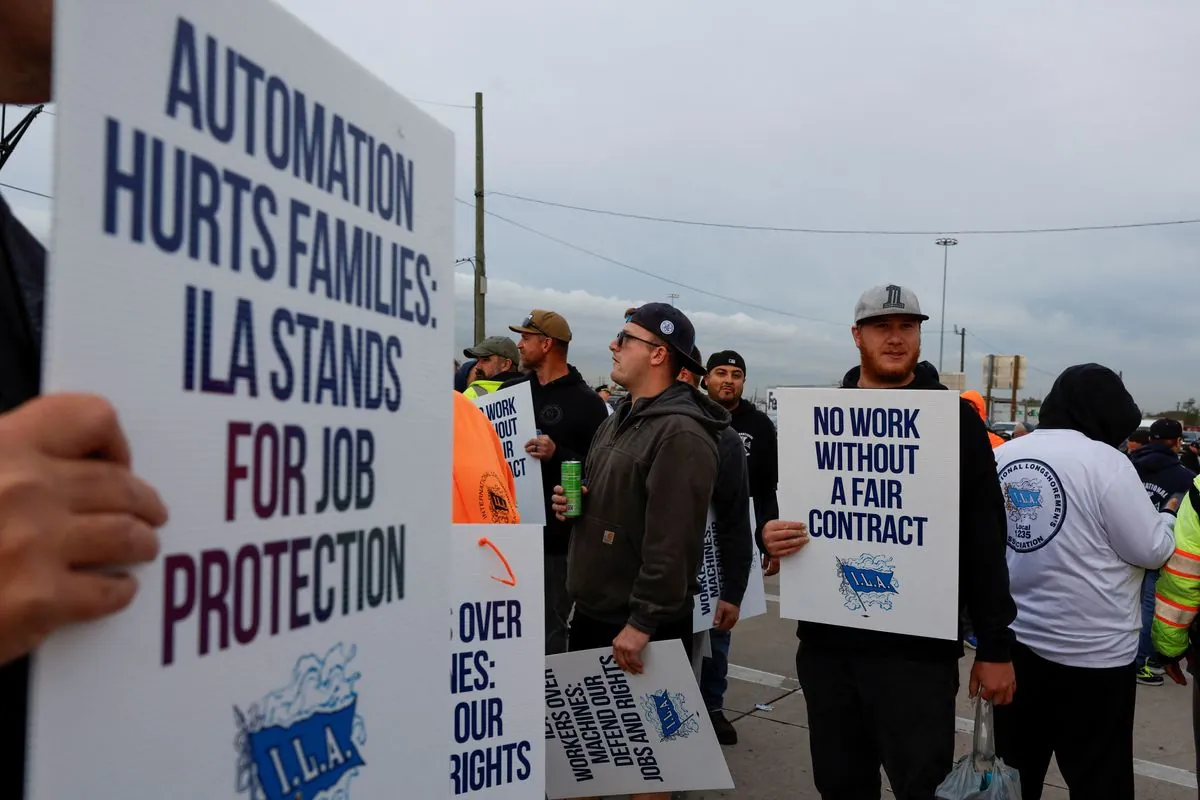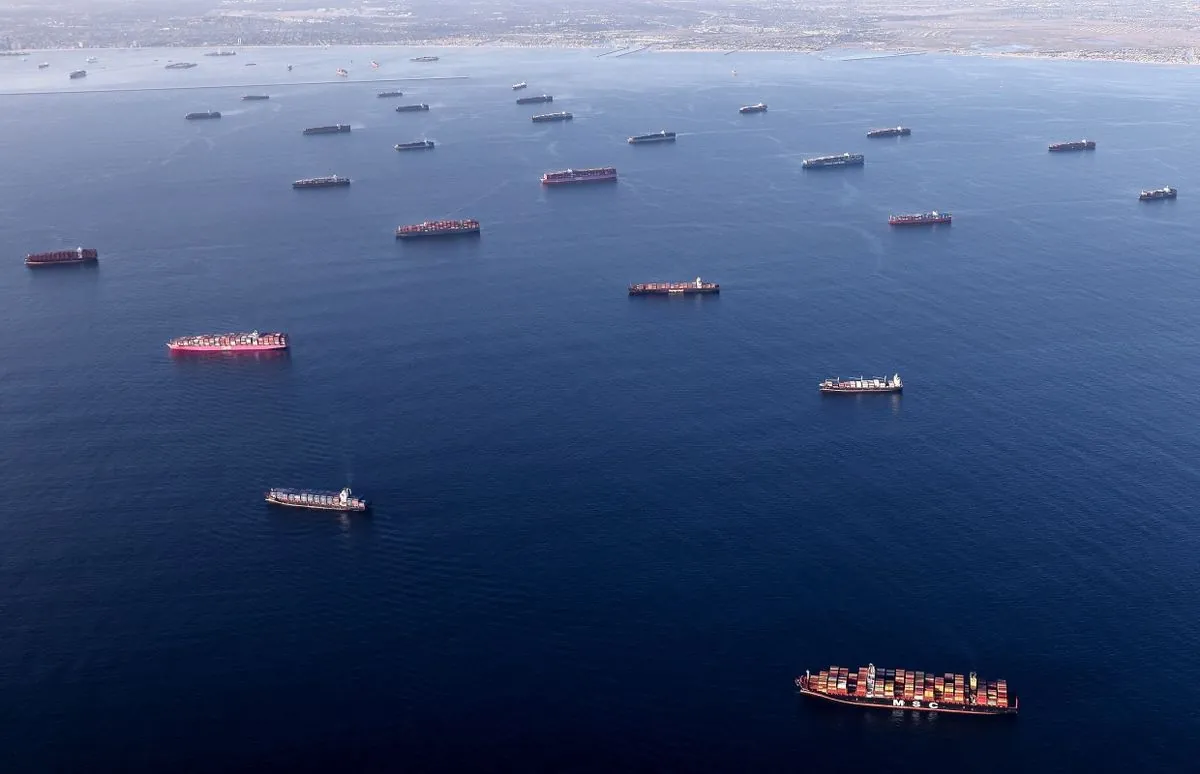Biden's Dilemma: Port Strike Challenges Election Strategy
Dockworkers' strike tests Biden's pro-union stance amid economic concerns. White House faces pressure as port shutdown threatens supply chains, potentially impacting November election.

A significant labor dispute has erupted at major US ports, presenting a complex challenge for President Joe Biden and his administration. Tens of thousands of dockworkers initiated a strike on October 1, 2024, affecting ports along the East Coast and Gulf of Mexico. This action, rooted in demands for improved wages and job security against automation, has the potential to disrupt supply chains and impact the broader economy.
The International Longshoremen's Association, founded in 1892, represents these workers in their negotiations with international shipping companies. The strike encompasses fourteen major ports, which handle over half of the nation's container trade, including the Port of New York and New Jersey, the largest on the East Coast.
Biden has expressed his intention not to intervene in the strike, emphasizing his support for collective bargaining. This stance aligns with his long-standing pro-union identity, exemplified by his unprecedented action in 2023 when he became the first sitting president to join a picket line. The White House has highlighted the substantial profits of shipping companies, noting an 800% increase compared to pre-pandemic levels.

However, the timing of this strike, barely a month before the November 2024 election, adds a layer of political complexity. The Biden administration faces a delicate balance between supporting labor rights and managing potential economic repercussions that could influence voter sentiment.
The strike's impact on consumers may not be immediate, but prolonged disruption could revive memories of supply chain issues and inflation that plagued the early years of Biden's presidency. In 2022, the United States experienced a record trade deficit of $948.1 billion, highlighting the nation's reliance on efficient port operations.
"This could end up being quite disruptive at a very sensitive moment for the campaign. The question of what Biden wants to do might be wrapped up with what would serve the interests of the person who wants to be his successor."
The global container shipping market, valued at approximately $8.9 billion in 2023, plays a crucial role in the US economy. The current dispute touches on historical tensions between labor and technological advancement in the maritime industry. Automation in ports, which began in the 1960s with containerization, continues to be a contentious issue.
While the Taft-Hartley Act of 1947 provides the president with authority to intervene in strikes affecting national health or safety, Biden has stated he does not plan to use this option. This decision reflects the administration's commitment to labor rights but may face scrutiny if economic impacts escalate.
The strike also highlights the evolving nature of global trade. Since the first steamship crossed the Atlantic in 1819, maritime commerce has undergone significant transformations. Today, the largest container ships can carry over 24,000 TEUs, demonstrating the scale of modern maritime trade.
As negotiations continue, the Biden administration must navigate the competing interests of labor rights, economic stability, and political considerations. The outcome of this dispute could have far-reaching implications for the upcoming election and the future of US labor relations in an increasingly automated global economy.


































